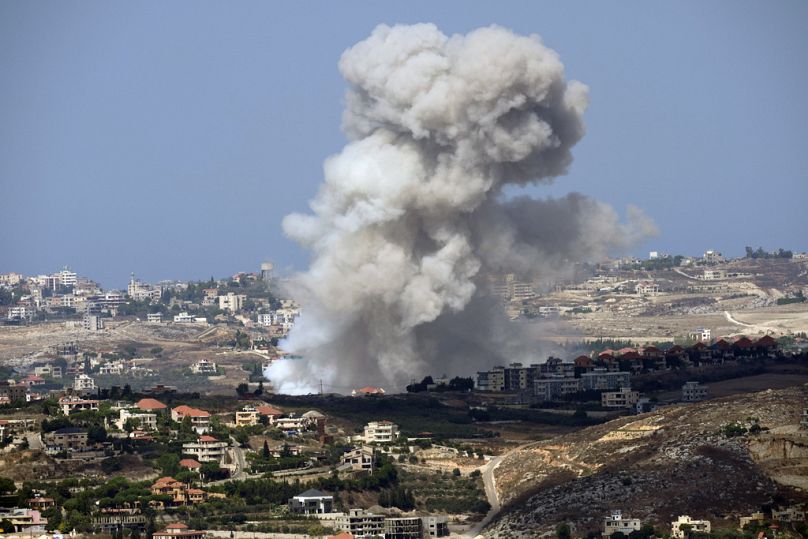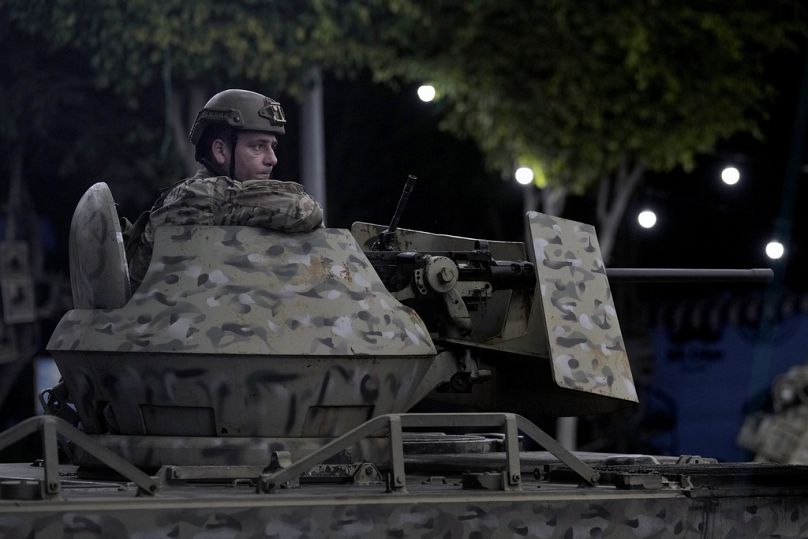As the Israeli military attempts to lay waste to Hezbollah in southern Lebanon, civilians have been caught in the crossfire.
At least six people were killed and 15 were injured in Beirut in what the Israeli army said was a "targeted strike" on the Lebanese capital as IDF engaged in a fresh round of strikes against Hezbollah on Tuesday.
Meanwhile, Lebanese authorities reported that bombardment the day before killed at least 558 people, including 50 children.
Both sides reported new Israeli strikes on Lebanon overnight and into Tuesday morning, with IDF claiming it hit "dozens" of Hezbollah targets in the neighbouring country's south.
The Israeli army said its jets struck 1,600 Hezbollah targets on Monday, with the spokesperson saying many were hidden in residential areas and concealed in private homes.
Ahead of its widening air campaign against Hezbollah, the Israeli military warned residents in southern and eastern Lebanon to evacuate, forcing thousands to flee to the southern port city of Sidon.
In a recorded message, Israeli Prime Minister Benjamin Netanyahu urged Lebanese civilians to heed Israeli calls to evacuate, saying "take this warning seriously".
"Please get out of harm's way now," Netanyahu said. "Once our operation is finished, you can come back safely to your homes."
Israel military spokesman Daniel Hagari said the army would do "whatever is necessary" to push Hezbollah from Lebanon's border with Israel. Israel was prepared to launch a ground invasion on Lebanon if necessary, he added, but that the country was not "looking for wars".
"We are looking to take down the threats," Hagari said. "We will do whatever is necessary to do to achieve this mission."
The IDF said Hezbollah said that 100 rockets had been fired from Lebanon into northern Israel since the early hours of Tuesday morning, setting several fires and damaging buildings in the country’s north.
The rockets reportedly came in five volleys, the largest of them targeting the Upper Galilee area containing 50 rockets. The military said it had struck the launchers used in the barrages. Also heavily targeted was an area south-east of the Israeli city of Haifa.
Earlier strikes hit medical services
Lebanese Health Minister Firass Abiad said the earlier strikes hit hospitals, medical centres and ambulances. The government ordered nurseries, schools and universities to close nationwide and began preparing shelters for the displaced.
Some strikes hit residential areas in the south and the eastern Bekaa Valley. One hit a wooded area as far away as Byblos, more than 130 kilometres from the border north of Beirut.
Israel said it was expanding the airstrikes to include areas of the valley along Lebanon's eastern border with Syria.
Israel's military chief, Herzi Halevi, said Israel was preparing its "next phases" of operations against Hezbollah and that its airstrikes were "proactive", targeting Hezbollah infrastructure built over the past 20 years.
Halevi said the goal was to allow displaced Israelis to return to their homes in northern Israel.
World leaders concerned about increasing hostilities
A spokesperson for US President Joe Biden said the administration is worried about what's happening between Israel and Hezbollah in Lebanon. White House Press Secretary Karine Jean-Pierre said a ceasefire deal between Israel and Gaza is key to easing tensions in the region.
"It's in everyone's interest to resolve it quickly and diplomatically," she told reporters travelling with Biden to New York, where he is to deliver his final address to the UN General Assembly on Tuesday.
"Civilians on both sides are paying an enormous price," said Josep Borell, the EU's foreign policy chief, in a statement posted on X.
It comes days after the EU called for an "immediate ceasefire" between the groups.
UN Secretary-General António Guterres said he was "gravely concerned" about the escalating situation along the Blue Line — a line dividing Lebanon from Israel — and the "large number of civilian casualties".
"I'm also gravely alarmed by the continued strikes by Hezbollah into Israel. I call on all to protect civilians & civilian infrastructure," he said in a post on social media platform X.
UN peacekeepers in southern Lebanon near the Israeli border have stopped their patrols and are staying in their bases "given the volume of exchange of fire", a spokesperson for the diplomatic and political organisation said.













